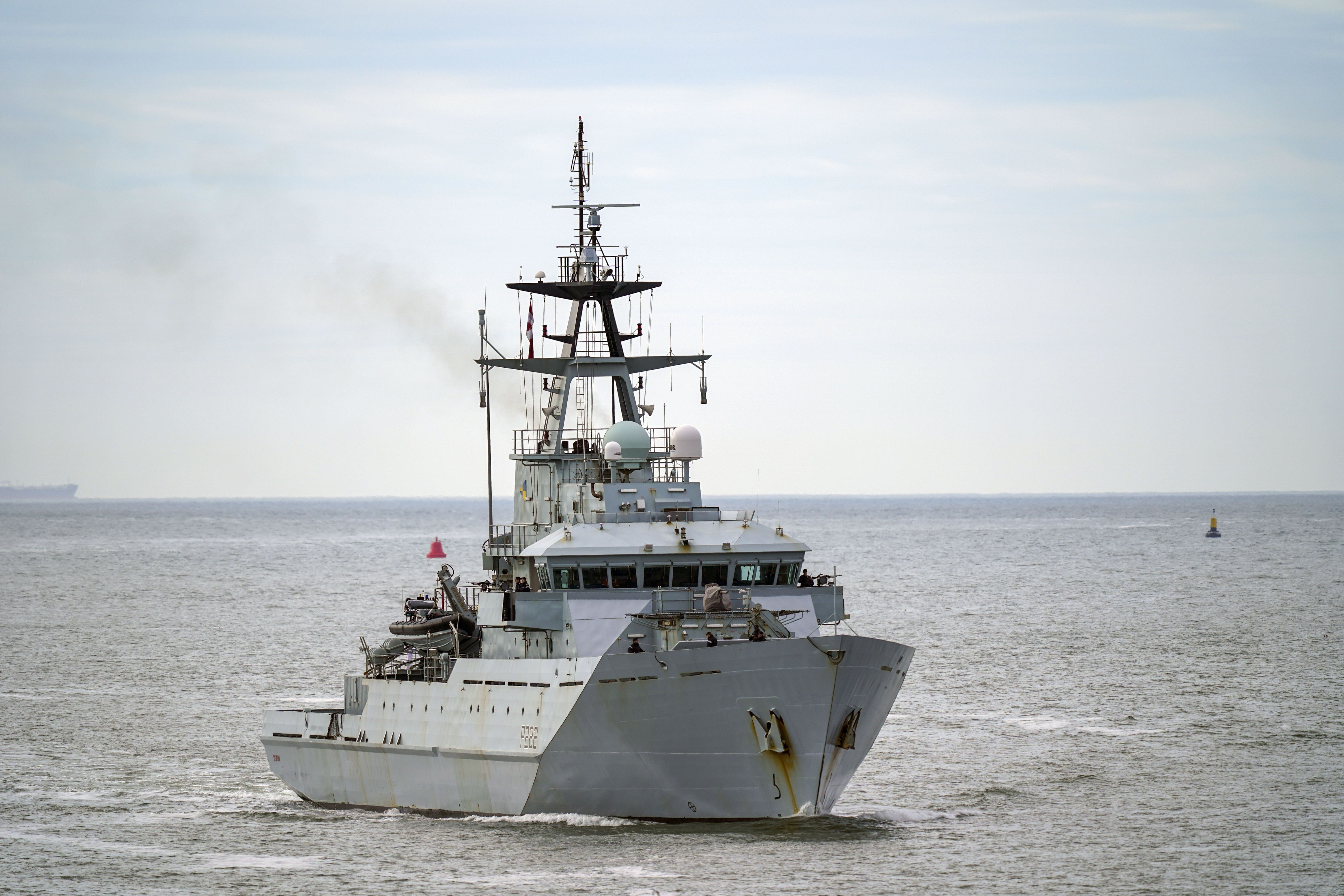Royal Navy to hand control of Channel small boat crossings back to Home Office
Rishi Sunak ends defence primacy after admitting the government’s response was ‘too fragmented’

The Royal Navy will hand responsibility for small boat crossings in the English Channel back to the Home Office next month after eight months of “primacy”.
Rishi Sunak announced the creation of a new Small Boats Operational Command as part of a raft of policies on Tuesday, admitting that the response had so far been “too fragmented”.
Officials have confirmed that the new unit will be led by the Border Force, and that Royal Navy primacy in the Channel will end on 31 January.
The navy saw its main aims as preventing loss of life, securing the border and ensuring no boats reached land undetected, but Home Office officials repeatedly claimed the operation would act as a “deterrent”.
A report by parliament’s defence committee questioned “whether escorting those crossing the Channel to Britain’s shore really will act as a deterrent” and warned of additional pressure on the navy following the invasion of Ukraine.
Ministry of Defence staff and assets will support the new Small Boats Operational Command, alongside the National Crime Agency (NCA) and other bodies, but the new structure is hoped to better coordinate and resource intelligence, interception, processing and enforcement relating to small boat migrants.
The command will be led by Duncan Capps, who is currently a major-general in the British army but will be taking the role as a civilian after leaving the military this month.
Current Clandestine Channel Threat Commander Dan O’Mahoney, who was appointed by Priti Patel in August 2020 as she vowed to make Channel crossings “unviable”, is stepping down.
The Small Boats Operational Command will have a new headquarters in London, staffed with around 100 people, while hundreds more staff will be recruited to work in and around Dover.
Previously, a small number of Home Office staff were under Mr O’Mahoney’s control and any increases in response to Channel crossings had to be pulled in from other areas, having a knock-on impact on other work.
In July, the borders watchdog severely criticised the Home Office for chaotic processing that was seeing vulnerability and security checks missed at Dover.
David Neal, the Independent Chief Inspector of Borders and Immigration, said that despite three years of increasing crossings the “Home Office has failed to move from a crisis response to having better systems and procedures in place and treating this as business as usual”.
Suella Braverman, the home secretary, said: “Tackling the unsustainable number of Channel crossings and the wider global migration crisis is one of the most important issues we face.
“This new, dedicated command will bolster our ability to save lives, deter illegal migration and disrupt the gangs responsible for these dangerous crossings.”
Defence secretary Ben Wallace said the militaryt “will continue to support wider cross-government efforts to tackle illegal migration”.
The mandate for the Small Boats Operational Command is understood to have come from the prime minister.
Its creation comes after a new record year for small boat crossings, with more than 40,000 people arriving so far in 2022.
At least four people drowned when a dinghy started sinking while attempting the treacherous journey on Wednesday, and the search for four more people believed to be missing has been called off.
A police investigation, by the Kent and Essex Serious Crime Directorate and NCA is underway into the crossing, and officers said they were working to establish the identity of the victims and contact their families.
The leader of Kent council said a teenager was among the people who had drowned, and of the 39 survivors, 12 were unaccompanied child asylum seekers.






Join our commenting forum
Join thought-provoking conversations, follow other Independent readers and see their replies
Comments